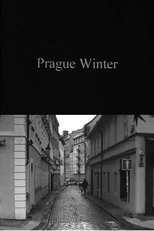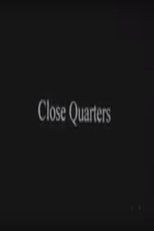

Prague Winter (2007)
So part of what's so surprising about Prague Winter is that it feels so lived in, so thoroughly grounded. It's not so much that Jennings makes Prague look like Manhattan (although there are commonalities in terms of architecture and the gaps of light between it). But the film restricts itself to sights on and around the tram, which provides an uncharacteristic linearity to the film. What's more, Jennings' status as a guest observer seems to bring out a humanism in his work, as he fixates on the elderly and, implicitly, the history to which they've been subjected. The post-Communist malaise hardens into grim acceptance, and this, along with the physical traces of Prague's history as manifested in the built environment, is what fascinates Jennings here. His camera is tender and unobtrusive, as you would expect from a filmmaker of his sensitivity.





